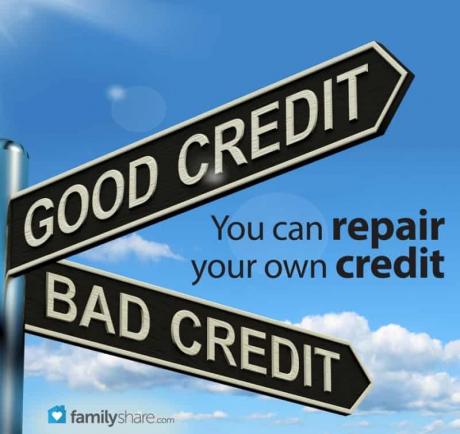
There are two basic steps to repairing your credit: correcting the errors and paying your bills.
First, let's talk about correcting errors
The following three point plan will help you correct mistakes on your credit report.
Step 1: Obtain a free copy of your credit report
from annualcreditreport.com (there is a similar website with free in the name that is, ironically, not free). You can request a copy of your credit report from each of the three bureaus, Equifax, Transunion and Experian. If you are eager to find and fix all of the problems now, you should pull reports from all three as they will be different. If you are in no rush, you may want to pull just one report every four months and continue doing so long into the future so that you can monitor the credit bureaus to make sure they haven't found new errors.
Step 2: Review your credit report carefully
Identify errors, including accounts that may be reported as open that are, in fact, closed. Pay close attention to judgments. You may have judgments against you that you don't know about - often in small amounts. Your credit report will indicate if they are paid or unpaid.
Step 3: You can and should be aggressive about telling the bureaus about every single mistake that might negatively impact your credit score. Alert them to paid judgments marked as unpaid. Note closed accounts listed as open. Certainly tell them about payments they've marked as late that were actually made on time. The contact information for the bureaus will be on the free credit report along with instructions on how to dispute their records.
Now, let's talk about paying your bills
There are a few things to watch out for specifically that you can do to improve your credit score fairly quickly.
Judgments
If you have any outstanding, unpaid judgments, pay them. Paid judgments have much less impact on your credit than open judgments. (I found a $300 judgment against me when I pulled my credit years ago; the bill related to an out of town hospital stay right before I moved. The hospital hadn't really tried to reach me; they just got a judgment. When I found the judgment, I paid it.)
Consistent late payments
You may have one or more accounts where you have fallen into a pattern of paying one month late. Each late payment is working against you. Get caught up so that all of your future payments are credited as being on time.
Close unused accounts
If you have credit cards or other credit lines that are open but unused, close them. That available credit is working against you.
Make more than the minimum payment
Your payment amounts will be reported on your credit report. If you make more than the minimum required payments, that will reflect positively on you.
Be patient
Big problems like bankruptcies and foreclosures must age for seven years before they are ignored. If you actually had one of those experiences, plan to use the subsequent seven years using little or no credit and making all of your payments on time to restore your good reputation.
By following these simple, virtually free steps you can improve your credit score.

